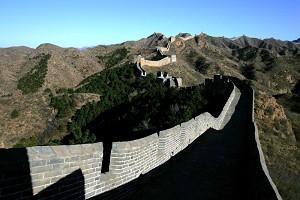Martial arts expert Fan Keping, from Nanjing City, Jiangsu Province, has collected more than 17,000 volumes of martial arts manuals, including two volumes of hand-written copies of The Esoteric Manual of Pugilism (written during the Southern Song Dynasty) and one volume of The Tiger Spear Manual (written during the Qing Dynasty).
Fan Keping says that The Esoteric Manual of Pugilism is the earliest extant martial arts manual discovered in China.
According to Nanjing’s Jinling Evening News , Fan Keping was very fond of martial arts even as a child. Since primary school, he learned from masters such as Luo Yu and Li Songru. Most of his collection of rare martial arts books was given to him by these two masters.
According to the report, the two volumes have been remounted with a new title page. They are slightly bigger than a modern magazine. The pages have turned yellow with age, but the handwritten notes are still very clear.
Fan Keping says that the manuscripts were completed during the Southern Song Dynasty, between the first and the second year of the Jianyan era (1127 to 1130 AD). During autumn in the first year of the Jianyan era, domestic troubles and foreign invasions threatened the dynasty. Thus the Emperor Song Gaozong invited a Taoist priest named Pei Xiuning to the capital to teach the soldiers martial arts.
Pei Xiuning categorized the internal and external styles of martial arts into two broad types—armed or unarmed. Eight sets of movements were transcribed and subsequently entitled The Esoteric Manual of Pugilism , which is possibly the earliest known martial arts manual.
The Tiger Spear Manual was jointly written by brothers Liu Rongqing and Liu Guoqing during the Qing Dynasty. Both were champions of the Annual Government Martial Art Competition.
It has taken a good deal of effort to preserve these manuals. When the Japanese forces attacked and occupied Nanjing, Master Luo Yu had to bury the books in Maoshan Mountain.
In order to avoid exposing the books to outside air, Luo Yu kept them in an inflated animal bladder tied with a string, a method similar to that of making Chinese sausages.
To keep away insects, a concoction made of boiled herbs such as cork, Chinese prickly ash, and musk was spread on the animal bladder before it was put into an earthen jar filled with quick lime.
Fan Keping hopes to donate the books to the library for everyone’s use.



